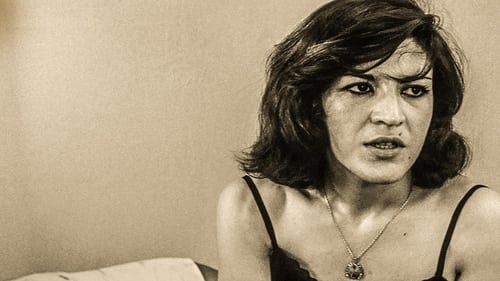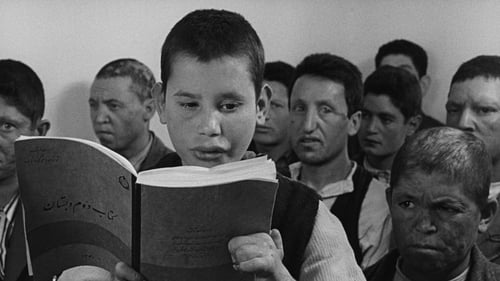Forugh Farrokhzad
出生 : 1934-12-29, Iran
死亡 : 1967-02-13
略歴
Forugh Farrokhzad (Persian: فروغ فرخزاد; December 29, 1934 – February 13, 1967) was an influential Iranian poet and film director. She was a controversial modernist poet and an iconoclast, writing from a female point of view.

Poem
"Perjantai" (Friday) is a Finnish short film that was compiled from the material shot by friend in Lebanon and it is loosely based on a poem of the same name by Iranian poet Forough Farrokhzad. Young woman travels through the house she has seen for the last time for many times.

Part 3 of documentary trilogy about Pertsian poet Forough Farrokhzad. This part focuses on her theatre and film work.

Herself
Part 2 of the trilogy concerning Persian poet Farough Farrokhz. This film examines her controversial, sometimes erotic, poetry. Contemporary Iranian poet Forough Farrokhzad became a legend in her own time for her innovative and controversial writings. In this extensive, three-part documentary, Farrokhzad's life, work, and soul are laid bare. Director Nasser Saffarian deftly combines interviews with family members and peers with footage of Farrokhzad shot by Bernardo Bertolucci. Saffarian digs deep into her personal and professional life to uncover new information about this outspoken artist. Includes The Green Cold, a revealing look at her private world, The Mirror of the Soul, an exploration of her controversial, sometimes erotic poetry, and Summit of the Wave, an overview of her theater and film work.

Part 1 of the trilogy concerning Persian poet Farough Farrokhz. This film traces her personal life.

"Forough Farrokhzad" Funeral Ceremony

Woman in taxi (uncredited)
Hashem is a cab driver who finds an infant child in the back seat of his cab one night after he gives a ride to a young woman. Hashem and his girlfriend, Taji, try to cope with this unwanted child. Hashem insists on getting rid of the child, Taji on keeping him.

Narrator (voice) (uncredited)
Set in a leper colony in the north of Iran, The House is Black juxtaposes "ugliness," of which there is much in the world as stated in the opening scenes, with religion and gratitude.

Editor
Set in a leper colony in the north of Iran, The House is Black juxtaposes "ugliness," of which there is much in the world as stated in the opening scenes, with religion and gratitude.

Screenplay
Set in a leper colony in the north of Iran, The House is Black juxtaposes "ugliness," of which there is much in the world as stated in the opening scenes, with religion and gratitude.

Director
Set in a leper colony in the north of Iran, The House is Black juxtaposes "ugliness," of which there is much in the world as stated in the opening scenes, with religion and gratitude.

Director
Abadan, in the vastness of the oil areas of southern Iran...

Editor
The National Iranian Oil Company (NIOC), formed upon nationalization of the British Anglo-Iranian Oil Company, employed film systematically, producing many films on oil and petrochemical subjects. It also made films depicting Iran's progress and modernization, highlighting the role of the Shah and NIOC in that direction. Under its auspices, Ebrahim Golestan directed A FIRE (1961), a highly visual treatment of a seventy-day oil well fire in the Khuzestan region of southwestern Iran. This film was edited by the Iranian poet Forough Farrokhzad and won two awards at the Venice Film Festival in 1961.



